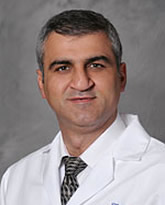Abstract
Purpose Uterine clear-cell carcinoma (UCCC) is a rare subset of type II endometrial carcinoma with a poor prognosis relative to the most common type of endometrioid carcinoma. Due to its rarity, there has been limited direct evidence of the efficacy of specific adjuvant therapy posthysterectomy in women with UCCC. We present a review of current literature regarding adjuvant therapy of uterine clear cell carcinoma.
Methods We searched for English-language publications through Pubmed using a combination of the following key words: endometrial carcinoma, clear cell carcinoma, recurrence, prognosis, adjuvant therapy, radiation treatment and chemotherapy. Due to the rarity of UCCC, studies were not limited by design or number of patients. Results There is a paucity of randomized prospective controlled studies focusing on UCCC adjuvant therapy. Findings have largely been derived from retrospective studies of type II endometrial carcinomas or all endometrial cancers as a group. Very few retrospective studies were found to focus on UCCC adjuvant therapy, although certain larger studies did have subset analyses of UCCC patients.
Conclusions For early stage disease, locoregional radiotherapy, especially vaginal brachytherapy, has evidence of efficacy. The therapeutic gain of radiotherapy may be further improved with the addition of systemic chemotherapy. Evidence for combined radiation therapy with systemic chemotherapy in women with advanced stage UCCC has remained debatable. UCCC-specific studies are needed to determine the best adjuvant therapy for UCCC without the confounding effects of USC and other endometrial cancers.
Introduction
Endometrial cancer (EC) is one of the most commonly diagnosed malignancies and is currently the most common gynecologic malignancy in the US [1]. The most common histological type in women with endometrial carcinoma (EC) is the endometrioid type or type I. Women with type I EC usually have a favorable prognosis [2-5]. However, about 5 % of patients have uterine clear-cell carcinoma (UCCC), a subset of type II endometrial cancers with a poorer prognosis [4, 6-13]. Five-year survival rates are less than 50 % for stage II and above [4, 6-9]. Traditionally, endometrial cancers have been treated surgically with hysterectomy and bilateral salpingo-oophorectomy, with lymph node dissection [7, 14]. Women with adverse histological types, e.g. UCCC are often required to receive adjuvant therapy posthysterectomy. Adjuvant management options include radiation treatment (RT) alone, chemotherapy alone or a combination of RT and chemotherapy (RTC). However, given its rarity, the optimal adjuvant therapy for UCCC is controversial. Very few studies were devoted entirely to investigate adjuvant options solely for patients with UCCC [5, 7, 11, 15-17] and most of the available studies grouped women with UCCC with women with uterine serous carcinoma (USC) or even grouped them as part of women with endometrial carcinoma of all histological subtypes [18-20]. Since there has been limited direct evidence of the efficacy of specific adjuvant therapy posthysterectomy in women with UCCC, we present a review of current literature regarding adjuvant therapy of uterine clear cell carcinoma.
Comprehensive surgical staging is necessary to correctly stage the disease and consequently plan the specific adjuvant therapies necessary. This would include adequate lymph node dissection (pelvic and para-aortic), omentectomy, as well as peritoneal cytology examination. In a retrospective study by Thomas et al. [15], 69 patients with UCCC initially presented with no clinical evidence of extra-uterine disease. However, on surgical assessment 52 % of these patients were upstaged and 20 % revealed lymphatic spread. In fact, the extent of lymphadenectomy has been correlated with survival endpoints [21]. Thus, comprehensive surgical staging is very important for management of UCCC.
While positive peritoneal cytology was excluded from 2009 International Federation of Gynecology and Obstetrics (FIGO) staging for EC, its prognostic significance in women with EC remains controversial. Combining multiintuitional data sets of women with UCCC is essential to study its prognostic impact in women with UCCC. Until then, routine peritoneal cytology examination should be performed in all women with UCCC as part of their surgical staging procedures.
For the purpose of this review, we will address adjuvant therapies in women with FIGO (International Federation of Gynecology and Obstetrics) stages I-II UCCC separately from those with advanced stage.
Early stage disease (FIGO stages I-II)
. . .Continue to read rest of article (PDF).
Rabbie K. Hanna, MD specializes in Obstetrics and Gynecology. He is certified by the American Board of Obstetrics and Gynecology and the American Board of Obstetrics and Gynecology for Gynecologic Oncology. Licensed to practice in Michigan, Dr. Hanna is a Member of the American Society of Clinical Oncology (ASCO) and the American College of Obstetrics and Gynecology (ACOG), among others. He is currently a Clinical Assistant Professor in Obstetrics and Gynecology at Wayne State University, Detroit, MI.
©Copyright - All Rights Reserved
DO NOT REPRODUCE WITHOUT WRITTEN PERMISSION BY AUTHOR.









